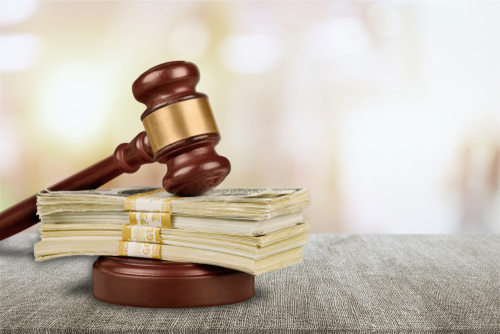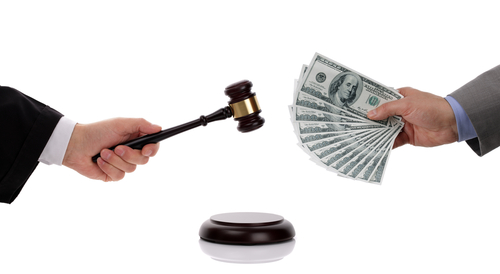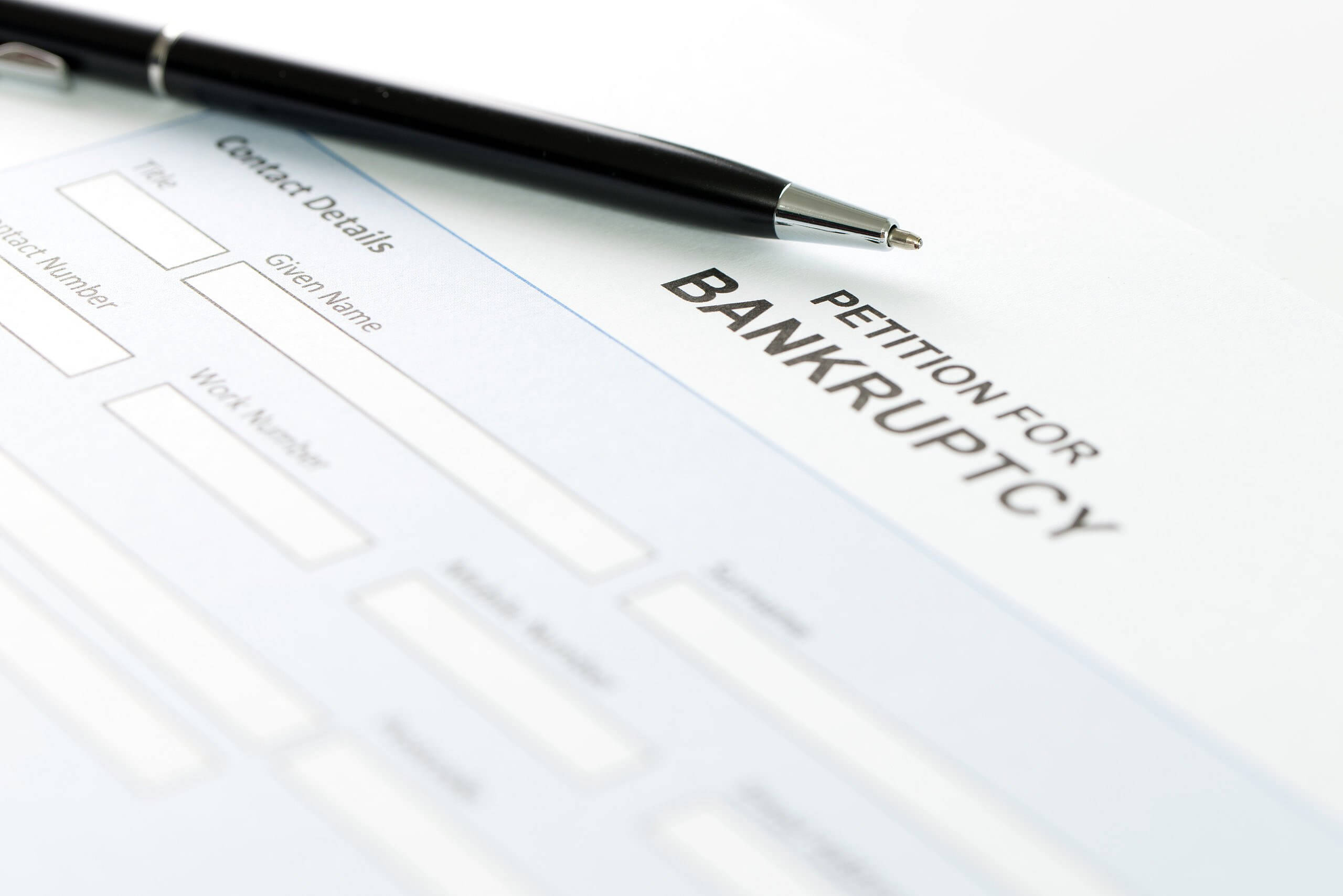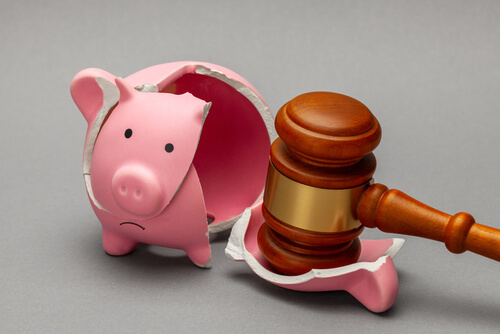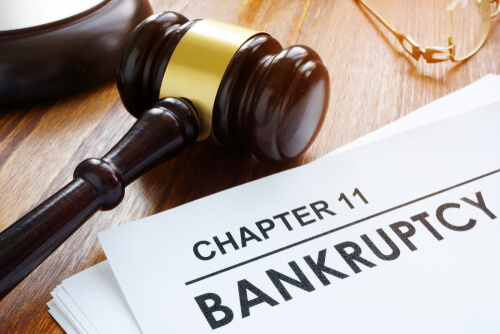Financial difficulties in the United States are all too common a problem and can play a role in marital problems and even divorce. Both New York bankruptcy and divorce laws are can be quite complex; combining the two can create a procedural and legal quagmire with far reaching ramifications and implications for all parties involved. Bankruptcy is primarily a federal law while divorce law is largely set in the state arena. However, because bankruptcy and divorce can occur in rapid succession – even at times simultaneously – the impact of the two and their timing should be explored in more depth.
Chapter 7 Bankruptcy
Chapter 7 is one of the most common forms of bankruptcy alongside Chapter 13. While Chapter 13 requires partial or full repayment of a petitioner’s debt for a period of years before discharging any eligible remaining debt, Chapter 7 is a more complete form of bankruptcy as it will erase all eligible debt without requiring repayment. However, though wider in its scope a Chapter bankruptcy 7 filing does not erase a debtor’s obligation for:
- Tax debts;
- Federal student loans;
- Fines from criminal cases;
- Domestic support obligations (such as child support and spousal support); and
- Debts created through fraud.
Both bankruptcy and divorce may be appropriate in certain instances, but the decision of whether to file bankruptcy or divorce proceedings first (or even simultaneously) may depend upon several factors, including:
- The reasons for either divorce or bankruptcy;
- The timing of the decision to file either action and benefit to each party involved;
- Whether a person is eligible to file for bankruptcy relief; and
- Whether the person wanting to file bankruptcy has assets or income that is collectible.
Divorce Before Bankruptcy
Generally, filing for bankruptcy first is more advantageous as it clarifies the finances of the parties that may later become involved in a divorce. However, there are circumstances where divorce does make sense before filing for bankruptcy:
- If one spouse wants to use divorce proceedings to get a palimony order that cannot be discharged in a later bankruptcy; or
- If a spouse is disqualified from filing for bankruptcy during the marriage because the other’s income is too high.
Bankruptcy Before Divorce Proceedings
If circumstances render it appropriate to temporarily refrain from filing for divorce (and both members of the married couple need to file bankruptcy), there can be numerous benefits for married couples to wait to file divorce proceedings until they have filed for bankruptcy and discharged their debt. Benefits to the parties involved may often include:
- Bankruptcy benefits to the married couple and their assets; and
- Simplifying and economizing the divorce and bankruptcy process.
Boosting Bankruptcy Benefits
The financial benefits of filing bankruptcy together may benefit married couples who refrain from filing for divorce until afterwards. The Bankruptcy Code allows each debtor filing to claim exemptions – even if the debtors are married to one another. This means married couples filing jointly have double the bankruptcy exemptions that may impact what property and possessions they are permitted to keep safe from creditors – specifically, for the purposes of divorce, the marital residence.
Federal law contains exemptions debtors may use when they file for bankruptcy. Every state also possesses its own set of exemptions, which vary from state to state. Depending upon the most advantageous outcome, married couples filing jointly may elect which exemptions they want to use (but generally may not avail themselves or federal and state benefits).
Simplifying and Economizing
Another benefit of jointly filing bankruptcy first is to simplify the subsequent divorce process. After any marital debt is settled, it no longer needs to be handled during divorce proceedings. This might allow spouses to settle their divorce more rapidly. A simpler divorce can often be less costly, which might put the parties in a better financial position to begin a new chapter of their lives as unmarried individuals.
Legal proceedings may also be time-consuming and costly, and filing a joint bankruptcy before filing a divorce could also vastly reduce expenses for both parties. By not filing separately, they can avoid double court filing fees and legal fees. Bankruptcy also requires the petitioning party produce large volumes of financial documents and personal information to substantiate their assets and the claims of inability to pay their debts.
Concurrent Divorce and Bankruptcy Filings
Simultaneously filing both a bankruptcy and a divorce action is abnormal and not the best course of action in most cases as it leaves assets, spousal and child support, obligations, and property up in the air while both proceedings are being resolved. Additionally, family courts cannot award and distribute assets until any pending bankruptcy is complete. This could drag out a case. The parties can use bankruptcy to delay bank levies or evictions as well as divorce proceedings to establish temporary orders of custody or spousal support in orderly to properly resolve bankruptcy and divorce issues at the same time. Though concurrent filings may be called for on rare occasions, they can be complicated and it is best to speak with an attorney before proceeding to understand your options.
Joint Filing Drawbacks
As much as filing joint bankruptcy might benefit married couples in certain situations, there can be disadvantages to doing so. In some situations, choosing to file jointly under Chapter 7 could render the parties financially ineligible due to their incomes, so they are left with a less complete debt discharge option under Chapter 13. Filing jointly prior to a filing for divorce may also create a conflict of interest for the attorney representing the married couple, causing a completely different set of problems for all parties involved. These situations require caution and would benefit from the scrutiny of an experienced legal professional.
New York Bankruptcy Lawyer
Both bankruptcy and divorce proceedings can be long, drawn out, complicated, and emotionally draining. However, both can sort out complex situations and settle difficult disputes related to child custody, possession of assets, spousal and child support, debt resolution and allocation.
The decision of if or when to file either may affect strategy and be beneficial to different parties at different times. Given the precarious nature of both divorce and bankruptcy as well as the potentially dire personal and financial consequences poor planning can create, it is advisable to speak to an experienced New York bankruptcy lawyer regarding these matters. At MOWK Law, we know this time is complicated, confusing and emotional and we are here to help with all your legal needs and questions- get in touch with us today.

